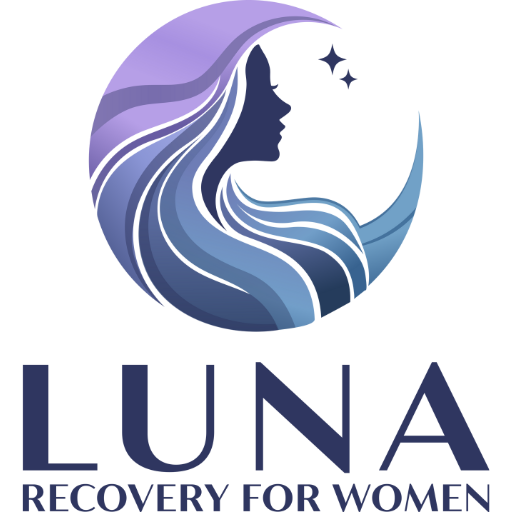Relapse is a difficult, yet common, part of the recovery process from drug addiction. Spotting the early warning signs can be crucial in preventing a full return to substance use. If you have a loved one in recovery, being mindful of subtle or significant changes in their behavior can help you intervene when it matters most. Understanding the emotional, mental, behavioral, and physical indicators of relapse allows you to provide timely and meaningful support.
Common Signs of Relapse

Emotional Indicators
Relapse often begins long before substance use resumes. The first stage is typically emotional relapse—when internal conflict and unresolved emotions start to build. Mood swings are usually an early clue. A person may seem more irritable, anxious, or depressed, struggling with everyday challenges and becoming overly sensitive to feedback or criticism.
Another concerning shift is social withdrawal. A person may begin isolating from family, friends, or support groups and may start skipping therapy sessions. Avoiding accountability—such as ignoring calls or being dishonest about their activities—can signal deeper emotional unrest. A drop in self-esteem, along with statements filled with hopelessness or negativity, may also suggest that they’re emotionally at risk.
Mental Warning Signs
Mental relapse follows emotional struggles. During this phase, the person may begin fantasizing about drug use. They may idealize past experiences with substances, focusing only on the perceived benefits while ignoring the damage caused.
Bargaining is a red flag in this stage. It may come across as rationalizations like, “One drink won’t hurt,” or “I can handle it this time.” Reconnecting with old acquaintances tied to drug use, revisiting triggering places, or downplaying their progress in recovery are all subtle signs of risk.
Obsessive thoughts about substances—whether verbalized or internal—can be particularly dangerous. If someone seems mentally preoccupied, distracted, or secretive, they may be silently struggling with cravings or thoughts of using again.
Behavioral Clues
Behavioral relapse begins with actions that set the stage for actual drug use. Warning signs include skipping therapy sessions, avoiding support meetings, or neglecting daily responsibilities at work, school, or home.
Secrecy is a common theme—locking doors, disappearing without explanation, or lying about their whereabouts. Financial red flags, such as sudden money problems, missing items, or asking to borrow cash, may also be present.
You might also notice a decline in physical wellness. Neglected hygiene, noticeable changes in weight, or persistent fatigue can all signal a return to unhealthy behaviors and priorities.
Physical Changes That May Indicate Relapse
Changes in physical appearance often provide some of the clearest evidence of relapse. Sudden weight gain or loss, bloodshot eyes, tremors, frequent nosebleeds, and unexplained bruises are physical signs worth noticing.
Deterioration in grooming habits—such as wearing dirty clothes or ignoring hygiene—can also be a warning. You may detect the scent of substances, like alcohol or smoke, on their breath or clothing.
Ongoing health issues, including frequent illness, digestive problems, or complaints of chronic pain, may also point to resumed substance use.
Relationship Struggles as Warning Signs
Relapse frequently disrupts interpersonal relationships. Increased conflicts, defensiveness, and emotional outbursts that seem disproportionate to the situation are all potential indicators.
The person might reconnect with old peers linked to substance use and simultaneously distance themselves from supportive, sober influences. Cutting ties with positive connections is a serious red flag.
A noticeable reduction in communication, particularly avoiding discussions about recovery, can also be a key warning sign.
The Role of Denial and Justification
Denial is one of the most deceptive aspects of relapse. A person heading toward a relapse may not want to admit they’re struggling. They might dismiss concerns or justify harmful behaviors with comments like, “I’m just stressed,” or “I don’t need meetings anymore.”
Even if these comments seem harmless, they often reflect deeper internal conflict. Trust your instincts—if something feels off, it probably is.
High-Risk Situations That Increase Vulnerability
Certain circumstances can significantly elevate the risk of relapse. Major life events—like losing a job, a breakup, or the death of a loved one—can trigger emotional distress that may lead to substance use as a coping mechanism.
Even positive changes, such as a promotion or new relationship, can cause stress that becomes difficult to manage without healthy coping tools. Holidays and celebrations where alcohol or drugs are present also pose risks. Being aware of these potential triggers can help you offer support at the right time.
The Importance of Routine and Structure
Maintaining structure is essential in recovery. A loss of routine—such as erratic sleep patterns, skipped meals, or neglecting responsibilities—can signal trouble.
Daily structure provides stability. When routines fall apart, it’s often an early warning sign of relapse. Encouraging healthy habits, accountability, and consistent engagement with support systems can help prevent backsliding.
What to Do if You Notice Signs of Relapse
If you believe someone may be relapsing, approach them with care and compassion. Avoid blame or guilt-based conversations. Instead, use supportive “I” statements like, “I’m concerned about you,” to express your feelings without judgment.
Encourage them to reconnect with their sponsor, therapist, or support group. If they’re not already involved with one, suggest resources like Alcoholics Anonymous (AA) or Narcotics Anonymous (NA). Offer help in re-engaging with treatment, if necessary.
It’s equally important to protect your own well-being. Set healthy boundaries, and remember: while you can offer support, you can’t control another person’s choices. Relapse isn’t a sign of failure—it’s a part of the ongoing journey toward recovery.
Get Support for Drug Addiction in North Andover, MA

If you or someone you care about is struggling with drug addiction, Luna Recovery for Women is here to help.
Contact us anytime at (855) 943-0472 or info@lunarecoverycenter.com, or visit us at 1270 Turnpike St, North Andover, MA (01845).
Don’t wait. The path to lasting recovery begins today.
